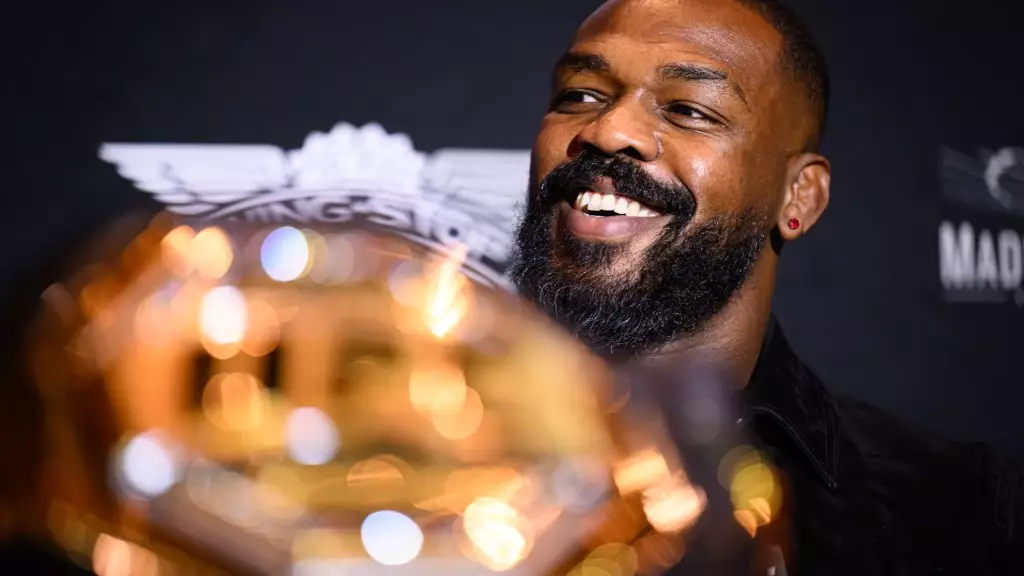In the high-stakes world of mixed martial arts, negotiations can wield just as much influence as the fights themselves. Jon Jones, the reigning UFC heavyweight champion, exemplifies this reality with his latest strategies leading up to a potential title-unification bout against interim champion Tom Aspinall. Renowned for his tactical acumen, Jones has thus far displayed a reluctance to engage with Aspinall, preferring instead to demand “f*ck you money” for this highly anticipated clash. His negotiation tactics suggest that he is not only focused on the immediate fight but also on securing his financial future.
Jones’ assertion for a hefty fee signals the recognition of his marketability and legacy in the sport. Having recently dispatched Stipe Miocic at UFC 309, Jones is firmly positioned for financial negotiations that are as compelling as the matchup itself. His reluctance to take on Aspinall next—coupled with his previous performances—has raised questions about whether he’s strategically positioning himself to maximize his earning potential. Furthermore, UFC President Dana White’s assurance that Jones vs. Aspinall will indeed occur within the year underlines the certainty surrounding this lucrative bout, irrespective of the ongoing negotiations.
Michael Bisping, a seasoned UFC commentator and former champion himself, weighs in on Jones’ tactics with commendation. He notes that Jones’ avoidance of a bout against Aspinall leading up to the Stipe fight was ingeniously calculated from a marketing perspective. This, according to Bisping, inadvertently amplified the fight’s desirability, making it one of the most sought-after matchups in the UFC landscape. “Demand drives the market,” he suggests, and by delaying the matchup, Jones has elevated its stakes and potential profitability. Bisping’s insights reflect an understanding of how pre-fight narratives can significantly enhance both interest and expectation among fans.
The chatter surrounding Jones’ potential payday is as compelling as the fights themselves. Joe Rogan, who has become a pivotal voice in the MMA community, mentioned that Jones is targeting an eye-popping $30 million for the fight against Aspinall. This figure not only underscores Jones’ negotiation power but also marks a changing dynamic in how fighters are compensated. If the UFC can accommodate such financial requests, it challenges the traditional models of fighter pay, signaling that the promotion recognizes the immense star power that figures like Jones bring to the table.
As the UFC gears up for what could be one of the most financially significant fights in recent history, both fighters are likely aware of their stakes. For Jones, it’s about legacy and remuneration; for Aspinall, this represents a chance to solidify his status among the elite in the heavyweight division. As fans anticipate the outcome of negotiations and the eventual showdown, it becomes evident that in the world of UFC, fights are not only won inside the octagon but also in boardrooms and negotiation tables. The impending clash of these two titans promises to deliver not just action but a fascinating case study in modern sports negotiation.

